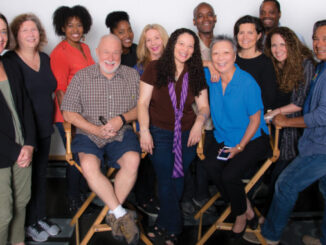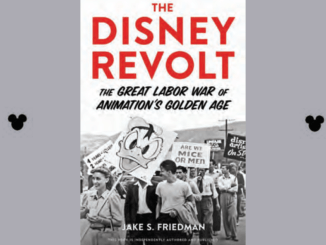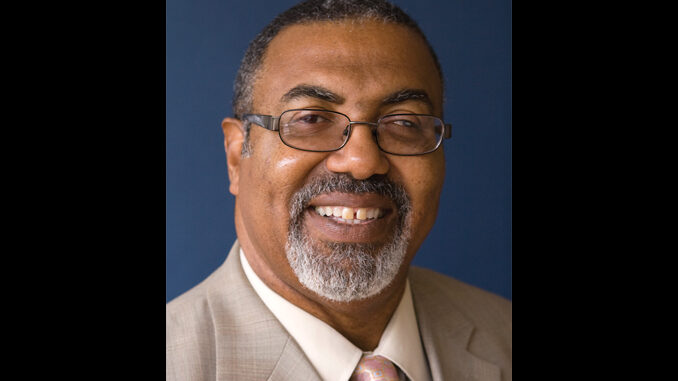
by Laura Almo
Marvin Davis should have become a union organizer. Davis, a Field Representative in the Hollywood office of the Editors Guild, retired in February after a long and rewarding career in the film industry. He had joined Local 700 as a Field Rep in 2010 when it merged with Local 683, the Laboratory Film/Video Technicians and Cinetechnicians, for which he had served as Secretary-Treasurer. At the Editors Guild, he worked alongside the other Field Reps (Karen Greene, Ann Hadsell and Jacky Olitsky) and continued his lifelong commitment to supporting workers’ rights, including fair wages, good benefits and a strong retirement package.
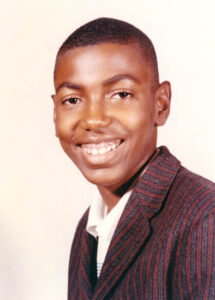
Growing up in Ohio in the 1950s and early ‘60s, Davis remembers seeing both the Ku Klux Klan and the Civil Rights movement in action. In order to get a better education, he moved to California and attended Dorsey High School in Los Angeles. While still in high school, Davis got his first job at a carpet mill, doing manual labor.
His political side emerged back then, he recalls, when he read an article about organized labor. He went to his boss, showed him the article and said, “Everyone can benefit from this.” Davis was concerned that people at the carpet mill didn’t have medical coverage. When he began to organize with the local textile union, word got back to his boss and the once bright future he was promised was over. Davis was let go from his job, and his boss made it perfectly clear that it was because he was organizing — but the “official” reason was that there was no longer a position for a part-time worker. Davis filed a complaint with the National Labor Relations Board, but it was a done deal; he was out of a job.
However, life had better things in store for him. Through a connection, Davis got a job at MGM Studios as a messenger and was told, “Now you’ll be able to see what a real union job is like.” He was so happy to be working that he paid no attention to his salary, and recalls that when he discovered he was making $3.65 an hour (with benefits), in contrast to the $1.25 he was making at the carpet mill, he said almost did a back flip. “I couldn’t believe the salary I was making, and the benefits I had,” Davis relates. “Whenever I went somewhere, people would say, ‘Wow, you’ve got a good health plan.’ I just kept hearing people talk about that and, as a young person, I asked, ‘Isn’t that the norm?’”
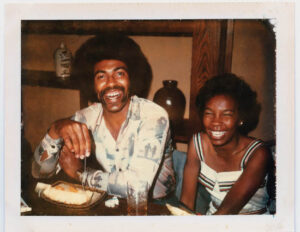
Davis worked his way up to film lab technician at MGM, and kept that job during the day while attending college classes at night. After graduating from Cal State Long Beach with a BA in Political Science (and a deeper understanding of the labor movement), he moved to the Bay Area to work for the Alameda County Probation Department. He soon realized that this job wasn’t for him, so he returned to MGM in his former job.
Davis worked atMGM as a film lab technician for 20 years, from 1969 to 1989 and says the day he met Elvis Presley on the lot stands out as a special moment inhiscareer. Healso remembers his fellow lab techs fondly: “They had so much pride in what they did. I was very proud of being a film technician and thought I was in a real esteemed group of people.”
When MGM closed in 1989, Davis remembers that it was a very stressful time for him because both he and his wife were out of work. He looked around for a job at many different labs: CFI, Technicolor and RGB with no luck. He was about to take a job at Turner for $12 an hour when he got offered a job at Deluxe making $20 an hour with benefits. This was another reality check for him: “I realized there weren’t a lot of jobs with union wages and benefits outside of the industry; those jobs just weren’t out there.”
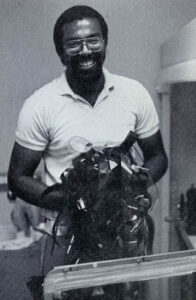
After working at Deluxe for a few years, Davis became a shop steward. “I wanted to be able to represent the people I worked with,” he recollects. “When I worked at MGM, most of the people I worked with were young, and retirement was so far off. But then, when you reach that age of 36 or 37, you have a mortgage, you’re married, you have obligations… You can sort of understand what all the union benefits were about.” Davis really cared about the people he worked with at Deluxe and wanted to be able to tell them about the benefits of a union, including health care and a pension plan. He loved the work, and after about five years as a shop steward, he ran for Secretary- Treasurer of Local 683 — and was elected to the post.
When Davis stopped working at Deluxe in 2005, he continued working as Secretary Treasurer of Local 683, where he championed the local’s members and boosted morale by making sure they were proud of the work they did and thought of themselves as respected professionals. However, the film industry’s transition to digital had an enormous impact on film lab technicians. Membership dwindled and, in 2010, the members of 683 became Editors Guild members, and Davis became a Field Rep.
“Marvin was, and is, unparalleled in his commitment, dedication and loyalty to the union and its members,” says Scott George, the Editors Guild’s Western Assistant Executive Director, who was previously the Business Agent for Local 683. “Without exception, in whatever capacity he is asked to serve, he gives his best efforts. Marvin is one of the most thoroughly decent and selfless men I have known, and it has been my privilege to work alongside him.”
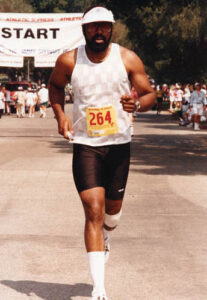
Looking back on his career, Davis says that he’s seen first-hand how organized labor improves peoples’ lives — so much so that in 2010, he completed a degree in Labor Studies at LA Trade Tech. He now encourages members to learn more about the labor movement, and what it can do for them, by taking classes at LA Trade Tech.
What’s more, he volunteers with United Teachers Los Angeles (UTLA) and the Los Angeles Unified School District (LAUSD), teaching and mentoring young people about the benefits of organized labor unions: a livable wage, health care, and retirement and pension plans. He feels very passionate about reaching students when they are young and impressionable, with their futures still in front of them.
Davis is satisfied with his rewarding 43 year career in the film industry, and content to retire while he is still young and healthy enough to enjoy life and. In fact, he says the recent ratification of the Deluxe contract (an agreement that will bring 150-200 jobs back to California from Canada) makes it easier for him to retire because it takes a great load off his mind. “It’s kind of nice to be able to leave and be able to say, ‘Now that’s not going to be so much the issue,’” he says. “That really weighed heavily on me.”
In addition to enjoying time with his family, Davis intends to continue his volunteer work. He also looks forward to spending more time working for many of the causes that are so near and dear to him, including the Editors Guild. “Retirement to me just means another phase in life that you go on to because you never want to be stagnant,” he concludes, and then adds with a laugh, “I’ve often said, ‘When I get to Heaven, I don’t want a rest — I want a job!”



